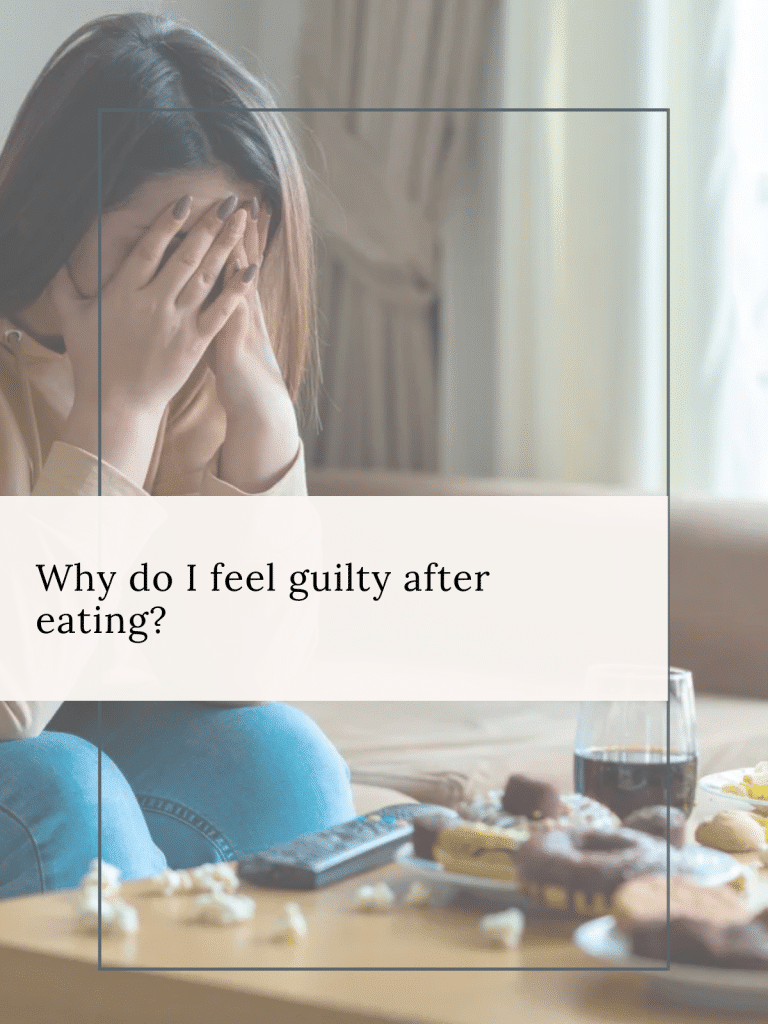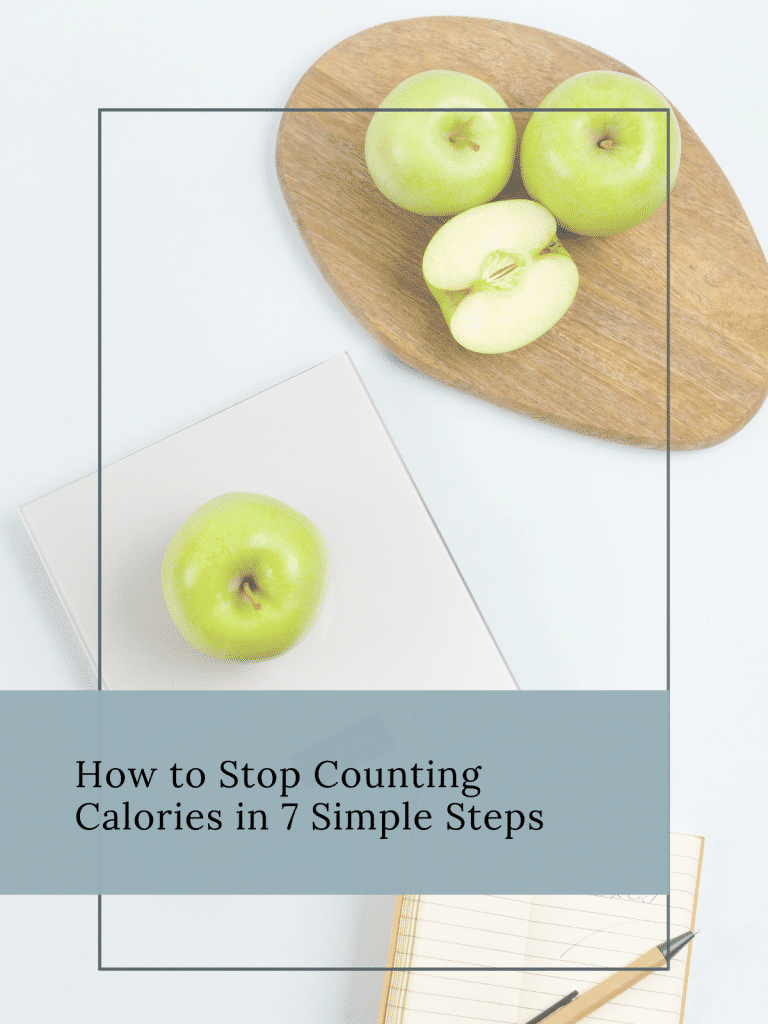How to Stop Thinking About Food All the Time
While it’s totally normal to think about food from time to time (such as when you’re hungry or when you’re meal planning), constantly thinking about food can take up a lot of time and mental energy.
If you feel like thinking about food has taken over your life, it’s time to examine why.
Figuring out how to stop thinking about food involves taking a deeper look at your eating habits and diet so you can figure out what may be driving the preoccupation.
Read on to learn about some of the most common reasons you can’t stop thinking about food, plus tips for how to stop thinking about food all the time.
6 Reasons You Can’t Stop Thinking About Food
Before you can learn how to stop thinking about food, it’s important to understand why you may be thinking about food all the time. Here are six of the most common reasons you might be obsessing about food.

You’re hungry
Not eating enough is a sure-fire way to feel obsessed with food. Did you know that thinking about food is a natural physiological response to hunger?
Think back to the last time you were hungry. Did you start thinking about your next meal? This is your body sending signals to make sure you eat something. For some people, this is an early sign of hunger. For others, it may be the only sign they feel sometimes.
If you’re not eating enough, your hunger and cravings will increase due to the release of a hormone called ghrelin. When ghrelin is released, it increases your appetite and drives you to eat.
If you’re constantly letting yourself get too hungry, it can lead to having obsessive thoughts about food. This is particularly common among calorie counters (or macro counters or anyone who does WW). Read our 7 steps to stop counting calories if this is something you find hard to give up.
Your meals aren’t well-balanced
What do you do if you’re eating enough but still thinking about food all the time? It could be a sign that your meals aren’t well-balanced.
Some foods are more satiating than others, meaning they keep you full for longer.
For example, protein promotes satiety (feeling full). If you’re not getting enough protein at meals, you may find yourself hungry and daydreaming about food. Fat also signals the release of fullness hormones, and can keep you full for longer.
In contrast, simple carbohydrates provide a quick burst of energy, and if you don’t pair them with protein or fats, you might become hungry soon after eating. This can lead to thinking about food due to the release of hunger hormones.
You’re on a diet and restricting certain foods or food groups
When we try to avoid something, it often becomes difficult to ignore.
Here’s an example: try not to think about a purple lobster. Really try not to think about it. I’m serious. Don’t think about a purple lobster. Do you see what’s happening? Odds are, trying not to think about a purple lobster only makes you think about it more.
The same goes for restricting foods. When you try to give up a specific food, you’re more likely to think about it.
This has been shown in a small study looking at the effects of chocolate deprivation on cravings. The study found that for people who were prone to cravings, avoiding chocolate for two weeks was associated with increased cravings for chocolate.
What does this mean for thinking about food all the time? If you’re trying to avoid certain foods, you’ll likely find that you have increased cravings and thus spend more time thinking about the food.
Learning how to incorporate all foods you enjoy into your diet, is a big part of reducing how much you think about food.
You’re not eating foods that satisfy you
Satisfaction is an often-overlooked part of the eating experience. How many times have you tried to eat fruit or something else “healthy” instead of dessert, only to find yourself thinking about food and grazing throughout the evening?
While it’s important to eat a balance of macronutrients (protein, carbohydrates, and fats) to keep hunger at bay, it’s also important to eat foods that are satisfying to you. If you eat foods that feel satisfying to you, you’re more likely to avoid daydreaming about food between meals.
You’re not addressing your emotions
Thinking about food can be a distraction from intense emotions. After all, it’s likely more pleasant to think about food than to feel sadness or disappointment.
The next time you find yourself thinking about food, ask yourself whether you might be trying to avoid a difficult emotion. If you are, think about ways you can feel and process that emotion safely. If allowing yourself to feel the emotion does not feel safe, it’s best to work through this process with a therapist.
You’re not getting enough sleep
Studies show that even short-term sleep deprivation can lead to increased appetite and cravings for carbohydrate-rich foods, with as little as two nights of sleep restriction.
That’s because lack of sleep leads to a decrease in the hormone leptin (which helps us feel full) and an increase in the hormone ghrelin (which makes us feel hungry).
If you’re thinking about food all the time, look at your sleep patterns. If you’re not getting enough sleep, it might be worth developing a sleep routine to help.
How to Stop Thinking About Food All the Time
Now that you understand how a preoccupation with food can develop, you can start to develop strategies to help you stop thinking about food all the time.
Eat regular, balanced meals
One of the best strategies to reduce the amount of time spent thinking about food is to eat regular, balanced meals. Try to include a balance of protein, high fiber carbohydrates, and fats at each meal.
Not sure if your meals are balanced or if you’re eating enough? Working with a registered dietitian who specializes in intuitive eating can be helpful to learn what meals will be filling and satisfying for you. Learn more about my UNDIET process and working with me to see if nutrition coaching is right for you.
Add in balanced snacks
Most people need to eat something every three to four hours to keep blood sugars balanced and prevent getting too hungry. This will likely help you stop thinking so much about food.
If there’s going to be more than about four hours between your main meals, you might want to consider adding in a balanced snack to tide you over. For a balanced snack, try to include at least two of the three macronutrients (protein, carbohydrates, and fats).
Let go of diet rules
Diet rules like “I won’t eat junk food” or “I need to avoid carbohydrates” can lead to feelings of deprivation, which can increase cravings. Letting go of these rules and giving yourself unconditional permission to eat can help reduce thinking about food all the time.
If you’re not sure how to let go of diet rules, learning about intuitive eating could help. Intuitive eating is an evidence-based, self-care framework that teaches you to tune into your hunger, fullness, and satisfaction cues to help you make food choices.
Eat foods you enjoy
If you’re not enjoying your meal, you’ll likely keep thinking about food, even if you’re full.
The next time you sit down to eat a meal, ask yourself what you need to eat to make the meal both nutritious and satisfying. This may look like choosing white rice over brown rice, adding cheese to your salad, or having dessert after dinner.
Eliminate distractions while eating
If you’re distracted while you eat, you might miss out on some of the pleasure in eating (an important part of feeling satisfied)l. By eliminating distractions, you’ll get more satisfaction from the meal, which can help calm thoughts about food.
Here are some tips for eating more mindfully:
- Put away your phone and turn off the TV.
- Engage all your senses. Notice the colors, smells, textures, sounds, and flavors of the food.
- Pay attention to how the food feels in your body.
- Check in with your hunger and fullness signals at various points throughout the meal.
Final Thoughts
Remember, thinking about food is a completely normal part of being human. But if you’re consumed by food thoughts and are wondering how to stop thinking about food, it’s important to figure out why food may be taking over your thoughts.
By eating enough food, balancing your plate, and eating foods that you enjoy and make you feel satisfied, you’ll provide your body with signals that you’re well-nourished, which can help you stop feeling controlled by food thoughts.
If you’re struggling with thinking about food all the time and aren’t sure how to move forward, a registered dietitian who specializes in intuitive eating (like me!) can help.
Book a complimentary 15-minute introductory call so we can get to know each other and to learn about how I can help you stop obsessing about food develop a more peaceful relationship with food and your body.








2 Comments